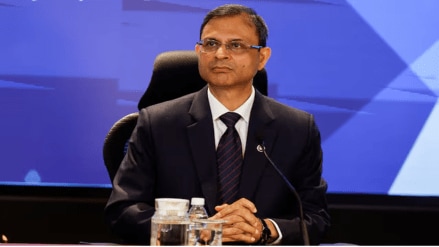In line with market expectations, the Reserve Bank of India (RBI) on Tuesday cut the repo rate by 25 basis points to 6 per cent, while also altering its monetary stance from “neutral” to “accommodative,” indicating a clear shift towards pro-growth measures. The Monetary Policy Committee’s (MPC) decision is being viewed as a welcome move, particularly for India’s MSMEs, which have been grappling with expensive credit and liquidity constraints in a volatile global environment.
The central bank’s move comes against the backdrop of trade tariffs announced by the US on Indian products, a slowdown in industrial activity, surge in input costs, and a sustained call from the industry for lower lending rates.
Governor Sanjay Malhotra also announced steps to ease liquidity pressures, including expanding the co-lending framework to all regulated entities and stressed asset securitisation — a move likely to benefit MSMEs directly.
Welcoming the policy move, K V Srinivasan, Executive Director and CEO of MSME lender Profectus Capital, said it is a “signal of good times” for the MSME sector.
“With much greater competition and global uncertainties, investment in up-to-date machinery is critical to maintaining our competitive edge. The cost of debt has been high in the past couple of years, and the signal towards a benign rate scenario should encourage MSMEs to plan capital investment,” said Srinivasan.
MSMEs, which have a close to 30 per cent share in the country’s gross domestic product (GDP) and contribute over 40 per cent to exports, are likely to be among the key beneficiaries of the rate cut and liquidity measures taken.
Lenders believe the softer rates may stimulate borrowing demand of MSMEs, especially in segments viz., trade, logistics, and manufacturing.
Calling the RBI’s decision “sentimentally positive”, Binod Kumar, MD & CEO of Indian Bank, said, “MSMEs will benefit from this move as it will ease credit costs and improve cash flows, which are critical for recovery and growth in the evolving market dynamics.”
Kumar said Indian Bank foresee improved credit appetite as MSMEs form a vital part of its lending portfolio. “Increasing the scope of co-lending will further strengthen lending to these sectors.”
Non-banking financial companies (NBFCs) too are likely to be instrumental in transmitting the benefits to MSMEs. Mayur Modi, co-founder of Moneyboxx Finance, which provides loans to micro units, said the reduced cost of funds will enable more affordable credit offerings.
“Measures like the expanded co-lending framework and securitisation of stressed assets further strengthen the lending ecosystem by increasing liquidity and risk-sharing,” he said.
Modi also stressed the importance of distinguishing between consumption-driven and enterprise-led borrowing to maintain credit quality.
With inflation largely aligned with the RBI’s target range, the moves announced are expected to kick off a sequence of measures targeting private investment revival and enterprise activity, having MSMEs at the centre of this fresh policy focus.
